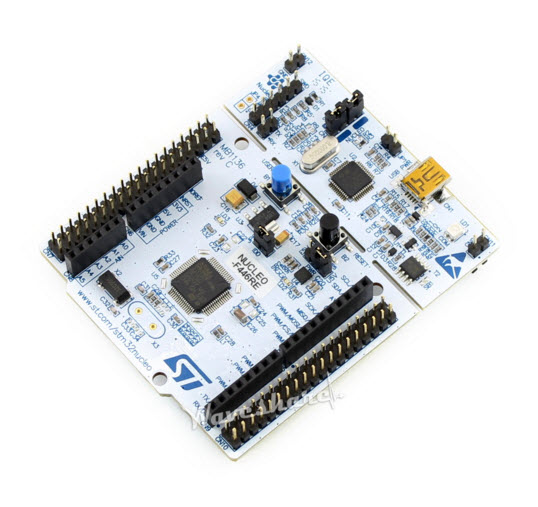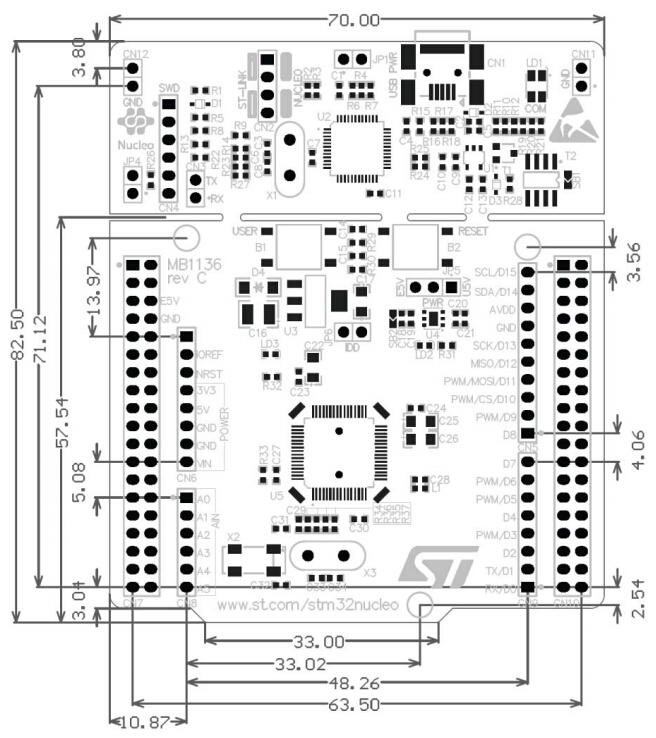NUCLEO-F446RE, STM32 Nucleo-64 Development Board with STM32F446RET6 Microcontroller
The STM32 Nucleo board provides a flexible way to build prototype applications balancing combinations of performance and power consumption. The STM32F446RE is a high-performance foundation line, ARM Cortex-M4 core with DSP and FPU, 512Kbytes Flash, 180MHz CPU, ART Accelerator, and Dual QSPI. The Arduino™ connectivity support and ST Morpho headers make it easy to expand the functionality of the STM32 Nucleo open development platform with a wide choice of specialized shields. The STM32 Nucleo board does not require any separate probe as it integrates the ST-LINK/V2-1 debugger and programmer. The STM32 Nucleo board comes with the STM32 comprehensive software HAL library together with various packaged software examples, as well as direct access to mbed online resources.
Microcontroller features
- STM32F446RET6 in LQFP64 package
- ARM®32-bit Cortex®-M4 CPU with FPU
- Adaptive real-time accelerator (ART Accelerator™) allowing 0-wait state execution from Flash memory
- 180 MHz max CPU frequency
- VDD from 1.7 V to 3.6 V
- 512 KB Flash
- 128 KB SRAM System
- 4 KB SRAM Backup
- Timers General Purpose (10)
- Timers Advanced-Control (2)
- Timers Basic (2)
- SPI (4)
- I2S (2)
- USART (4)
- UART (2)
- USB OTG Full Speed and High Speed
- CAN (2)
- SAI (2)
- SPDIF-Rx (1)
- HDMI-CEC (1)
- Quad SPI (1)
- Camera Interface
- GPIO (50) with external interrupt capability
- 12-bit ADC (3) with 16 channels
- 12-bit DAC with 2 channels
Nucleo features
- Two types of extension resources
- Arduino Uno Revision 3 connectivity
- STMicroelectronics Morpho extension pin headers for full access to all STM32 I/Os
- On-board ST-LINK/V2-1 debugger/programmer with SWD connector
- Selection-mode switch to use the kit as a standalone ST-LINK/V2-1
- Flexible board power supply
- USB VBUS or external source (3.3 V, 5 V, 7 - 12 V)
- Power management access point
- User LED (LD2)
- Two push buttons: USER and RESET
- USB re-enumeration capability: three different interfaces supported on USB
- Virtual Com port
- Mass storage (USB Disk drive) for drag'n'drop programming
- Debug port












